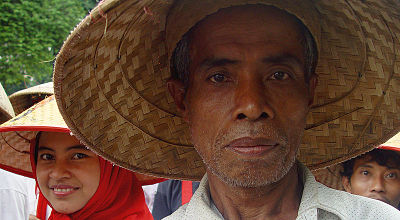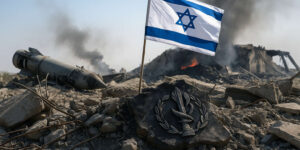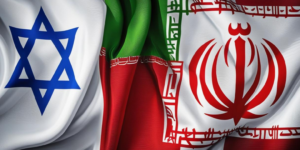Uptick in Church Closures, Attacks in Indonesia
The number of violations of Christians’ religious rights in Indonesia reached 40 in the first five months of the year, nearly two-thirds the amount of anti-Christian actions in all of last year, according to the Jakarta Christian Communication Forum.
The Christian minority in Indonesia faced 64 cases of violations of religious freedom last year, up from 47 in 2010, said Theophilus Bela, president of the group. Bela said he was worried about the growing incidence of violence and church closures, as his group recorded just 10 anti-Christian incidents in 2009. There were 40 such incidents in 2008, he said.
At least 22 churches have been forced to close this year, including 18 in the Singkil regency of Aceh Province that were sealed last month, as local authorities either sided with or came under pressure from extremist Islamist groups in this Southeast Asian archipelago that is home to the world’s largest Muslim population, according to Bela.
The closures in Aceh followed last month’s election of a hard-line Islamic governor. Bela said that after his organization’s intervention the closed churches in Aceh began worshipping again on May 13, but unconfirmed reports indicate other churches in the area have since been forced to close.
Violence against Christians has also increased, with most incidents taking place in areas surrounding Jakarta and Singkil, said Bela, who is also secretary general of the Indonesian Committee on Religion and Peace, a group that promotes inter-religious dialogue.
Besides a May 17 incident in which 600 Islamists hurled bags of urine and ditchwater at about 100 members of the Philadelphia Batak Christian Protestant Church in Bekasi, near Jakarta in West Java Province, local authorities closed down a small Pentecostal church about 15 miles west of Jakarta in Tangerang city, Banten Province, after members of the radical Islamic Defenders Front (FPI) attacked it on April 14, Bela said.
It was the second attack this year on the Gereja Pentakosta di Indonesia (GPdI) church by FPI extremists, driving 38-year-old pastor Abraham Boys into hiding and forcing him to seek asylum in the United States, Bela added.
Earlier, local authorities in Padang, West Sumatra Province, revoked the building permit of a Catholic church, St. Ignatius, telling the congregation to move to another location, Bela said. On March 21, public officials raided the church building under construction, forced laborers to stop and fenced the area with barbed wire.
Church leaders, however, refused to move to a new location, and authorities later allowed them to continue to worship there, Bela said.
A few days earlier, Bela added, unidentified gunmen sprayed bullets at the building of the Indonesia Christian Church (locally known as the GKI) in Indramayu, West Java Province, about 100 miles east of Jakarta. While no one was killed in the March 16 incident, it terrorized the Christian minority.
In Pangkal Pinang, in Bangka-Belitung Province, authorities have refused to grant a permit to construct a Catholic seminary due to opposition from local Muslims, according to Catholic news agency UCAN. Officials suggested the Catholic Diocese of Pangkal Pinang stop construction and move the building to a neighboring village, though clergy said they had previously submitted all necessary applications.
Another GKI church, known as the Yasmin Church, has also been denied permission to meet for worship at its church site despite a favorable Supreme Court order.
Local Christians complain that the impractical requirements of a 2006 decree, the Revised Joint Ministerial Decree on the Construction of Houses of Worship, provide the pretext for Islamic extremists and officials to close churches, revoke permissions and delay building permits. It mandates religious groups obtain the signatures of at least 90 members and 60 area residents, as well as approval from the local religious affairs office.
Lamentations in Bekasi
Over the laments of wailing church members, the municipal government of Bekasi sealed three churches in February because they had not yet fulfilled the requirements of the Joint Ministerial Decree.
In Mangseng village in Perwira Town, Bekasi, some 30 kilometers (19 miles) from Jakarta, the Batak Protestant Church Kaliabang (HKBP), Merciful Christ Church of Indonesia (GKRI) and a Pentecostal Church in Indonesia (GPdI) were closed on Feb. 11 because they did not have building permits.
In the week leading up to the closures, the Rev. Demak Simanjuntak of the HKBP Kaliabang church gathered leaders from the three congregations, and they decided to collect the signatures required by the Joint Ministerial Decree – the 90 members and 60 neighbors who are not members.
“Even this is understood differently by different parties–they wanted the 60 neighbors to be Muslims, even though the decree does not specify,” Simanjuntak said.
At a tense meeting with Bekasi officials on Feb. 10, the Rev. Hotman Sitorus of the GKRI church cried and begged to be given two more days beyond the planned closure date, as the church had planned a year in advance a special service on Feb. 12 for the confirmation of 24 people and the baptism of one, besides the taking of Communion.
“However, the government did not grant it to us,” Sitorus said.
Hearing that their churches would be closed on Feb. 11, the primarily female congregations had gathered at their respective sites by 8 a.m., praying and crying, before some 1,000 police officers sealed the three buildings. Over the wailing of the women, Bekasi officials read an announcement of the sealing; they did not give a copy of it to the church leaders.
“All of the members and the elders were deeply struck because all of their efforts had not produced a result,” Sitorus said.
The three congregations are still worshipping outside their buildings – the HKBP in a field next to its building, the GPdI congregation sitting on newspapers in front of their building and the GKRI members in homes.
Sitorus said his 150-member GKRI church has since secured 90 signatures of members and 60 signatures of area residents and submitted paperwork to town, district and Bekasi governments, only to have Bekasi officials return the application, saying it needed to be verified by local block captains. The building permit has not yet been granted.
“I entreat the area government not to make the process of granting a building permit for our church difficult,” he said.
The pastor of the GPdI Bulak Perwira Kaliabang Tengah, the Rev. Hotman Sinaga, said the congregation had been holding services without problem since 1997. Then in 2011 his church and the other two congregations began to receive opposition from a group from outside their area of Kaliabang.
“We had been slack in applying for a building permit because we had been able to worship peacefully,” he said.
Sinaga suspects that problems can be traced to the election of a new block captain, who belongs to a hard-line Islamic group.
“May the Lord touch and bless those who are against the presence of our church,” he said.
Sinaga too submitted a building permit application to the Bekasi government with the required 90 signatures of members and 60 signatures of area residents. As churches in Indonesia often find, there has been no response by the local government.
The general secretary of the Indonesian Fellowship of Churches, pastor Gomar Gultom, said the church should continue worshipping even though the local government has sealed their building.
“According to Article 9 of the Constitution of the Republic of Indonesia, the government guarantees the right to persons of all religions and faiths,” Gultom said. “Because of this, no person can deny another the right to worship.”
Gultom encouraged congregations to worship each week without fear.
“It is true that when Christians are restricted, they spread,” he said.




























































